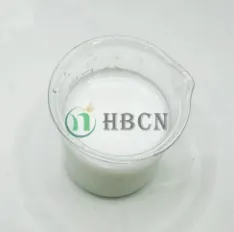
Jul . 21, 2025 14:11 Back to list
Aphid Armageddon: Top Insecticide Solutions for Stubborn Infestations
Aphids can decimate crops overnight, but the right insecticide strategy can turn the tide in this ongoing battle. From powerful insecticide bomb treatments to targeted acephate insecticide applications, growers now have more tools than ever to combat these persistent pests.

Understanding the insecticide for aphids threat
These tiny sap-suckers reproduce at alarming rates, with single females producing dozens of offspring daily. Left unchecked, aphid colonies stunt plant growth, spread viruses, and secrete sticky honeydew that fosters sooty mold. While natural predators help, severe infestations demand immediate intervention with effective insecticide for aphids solutions.Different aphid species may require specific approaches - some develop resistance to certain chemicals, while others hide in plant crevices. This makes choosing the right insecticide powder or liquid formulation critical for complete control.Therefore, it is essential to identify the species of aphids infesting your plants before selecting an insecticide. Additionally, rotating insecticides can prevent the aphids from becoming resistant to a single treatment. Integrated pest management (IPM) strategies, which combine cultural, biological, and chemical methods, are often the most effective way to manage aphid populations. By monitoring plant health regularly and acting quickly when infestations are detected, gardeners can protect their plants from the devastating effects of these tiny pests.
Top insecticide bomb solutions for aphid control
For rapid knockdown of heavy infestations, insecticide bomb defoggers create an insecticidal mist that penetrates dense foliage. These space treatments provide immediate relief when aphid populations explode. However, they work best when combined with residual products like acephate insecticide for lasting protection.Systemic options like acephate insecticide are absorbed by plants, killing aphids as they feed. This provides extended control with minimal environmental impact. For organic growers or sensitive areas, insecticide powder formulations containing natural pyrethrum offer effective contact killing with short residual activity.When using insecticide bomb defoggers, it is important to ensure proper ventilation after application to avoid any health risks to humans and pets. Additionally, the use of personal protective equipment such as masks and gloves is recommended during the application process. Systemic insecticides like acephate, on the other hand, require careful timing and application methods to maximize their effectiveness. Growers should monitor plant health closely and apply the insecticide at the recommended dosage and frequency to avoid harming the plants. For organic growers, the use of insecticide powder formulations containing natural pyrethrum can be a good alternative, but they should be applied carefully to target only the affected areas to minimize environmental exposure.
Application strategies for maximum insecticide effectiveness
Timing is crucial when applying insecticide for aphids - early morning or evening treatments avoid peak pollinator activity while targeting aphids when they're most active. Thorough coverage is essential, as aphids often congregate on leaf undersides. Alternating between insecticide classes prevents resistance development in persistent populations.For greenhouse operations, insecticide bomb treatments should be followed up with soil drenches or granular systemics to break the reproductive cycle. Outdoor applications may require repeat treatments at 7-10 day intervals to control newly hatched nymphs.
Resistance management and safety insecticide considerations
Over reliance on any single insecticide leads to resistant aphid populations. Implementing a rotation between acephate insecticide (organophosphate), parathyroids, and nondeterministic maintains effectiveness. Incorporating insecticide powder with physical modes of action (like semiautomatics earth) provides additional resistance-breaking options.Always follow label precautions - some insecticide bomb products require evacuation of treated areas. Proper PPE is essential when handling concentrated insecticide for aphids formulations. Buffer zones protect pollinators and aquatic habitats from drift.
Insecticide for aphids FAQs
How quickly does acephate insecticide work against aphids?
This systemic insecticide begins killing aphids within hours of application, with full population reduction typically visible within 24-48 hours as the chemical spreads through plant tissues.
When should I use an insecticide bomb versus sprays?
Insecticide bombs are ideal for enclosed spaces or severe infestations needing immediate control, while targeted sprays work better for spot treatments or outdoor applications where precision is needed.
Is insecticide powder effective against winged aphids?
Yes, properly applied insecticide powder can control winged adults, though reapplication may be needed after rainfall or irrigation washes away the protective dust layer.
How often can I safely apply insecticide for aphids?
Most labels allow applications every 7-14 days, but always rotate insecticide classes and monitor populations to determine the optimal treatment frequency.
Why should wholesalers stock multiple insecticide for aphids control options?
Different growing situations demand varied solutions - from insecticide bomb products for greenhouses to acephate insecticide for field crops. A complete inventory serves all customer needs.Arm your customers with winning aphid control solutions from our comprehensive insecticide line. Contact our sales team today to stock up on insecticide bomb systems, acephate insecticide, and specialized insecticide for aphids formulations - and help growers declare victory in their battle against destructive aphid infestations!
-
Tembotrione Mode of Action in Weed Control
NewsJul.21,2025
-
Safety Guidelines for Handling Atrazine in Farming
NewsJul.21,2025
-
Mesotrione Residue Management in Crops
NewsJul.21,2025
-
How Topramezone Controls Resistant Weed Species
NewsJul.21,2025
-
How to Properly Handle Glufosinate Ammonium
NewsJul.21,2025
-
Best Practices for Applying 2 4d Herbicide
NewsJul.21,2025
